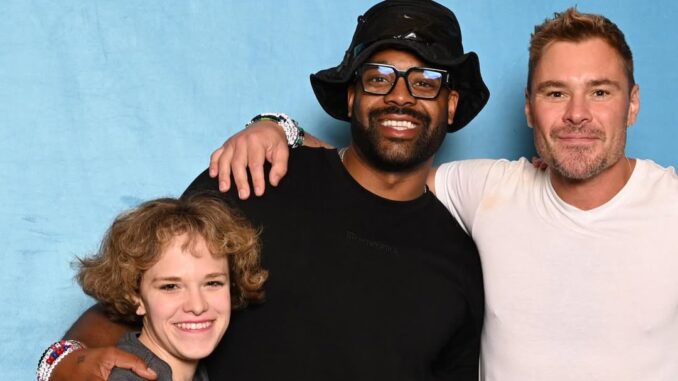
This week’s episode of Chicago P.D. put the spotlight firmly on Detective Kevin Atwater, showcasing one of the character’s most emotionally charged arcs to date. Known for his integrity, empathy, and deep ties to his community, Atwater once again found himself at the intersection of justice and morality — a place that has come to define his story throughout the series.
The episode opens with what seems like a standard case — a violent robbery tied to local gang activity. However, things take a personal turn when Atwater recognizes that one of the suspects might be someone he once mentored through a neighborhood youth program. This revelation forces him to confront the uncomfortable truth that his efforts to keep kids on the right path don’t always succeed. The tension builds as he’s torn between his sense of duty as a police officer and his compassion for those trying to escape the cycle of crime.
Throughout the hour, viewers watch Atwater navigate conflicting expectations. His boss, Sergeant Hank Voight, demands results, pushing the Intelligence Unit to close the case quickly and aggressively. But Atwater remains steadfast, determined to approach the situation with restraint and understanding. His resistance to heavy-handed tactics highlights his moral courage — and reinforces why he’s become one of the show’s most layered and respected figures.
A particularly powerful scene unfolds when Atwater finally corners the suspect — a scared teenager holding a gun but clearly in over his head. Rather than escalating the situation, Atwater calmly talks the boy down, choosing empathy over force. It’s a moment that encapsulates the essence of who Kevin Atwater is: a cop who believes in redemption, not destruction. His actions spark a debate within the team about what real justice looks like and whether compassion has a place in their often brutal line of work.
The emotional impact doesn’t end there. As the investigation wraps up, Atwater faces questions from internal affairs about his handling of the case. His choices — rooted in humanity rather than protocol — are scrutinized. Yet, even as the pressure mounts, Atwater stands by his decision, refusing to apologize for choosing compassion over compliance.
By the episode’s end, a quiet but poignant moment shows Atwater returning home, reflecting on everything he’s been through. The weight of his responsibilities as both a cop and a man trying to protect his community feels heavier than ever. But beneath that burden lies strength — the kind that continues to make him a moral anchor in Chicago P.D.’s chaotic world.
Kevin Atwater’s storyline this week wasn’t just another case — it was a character study in resilience, integrity, and the ongoing struggle to reconcile the badge with the heart. In a show filled with intensity and grit, Atwater’s calm conviction remains its most powerful weapon.
